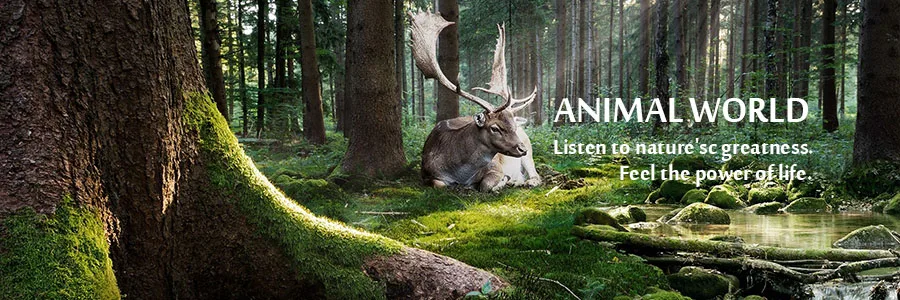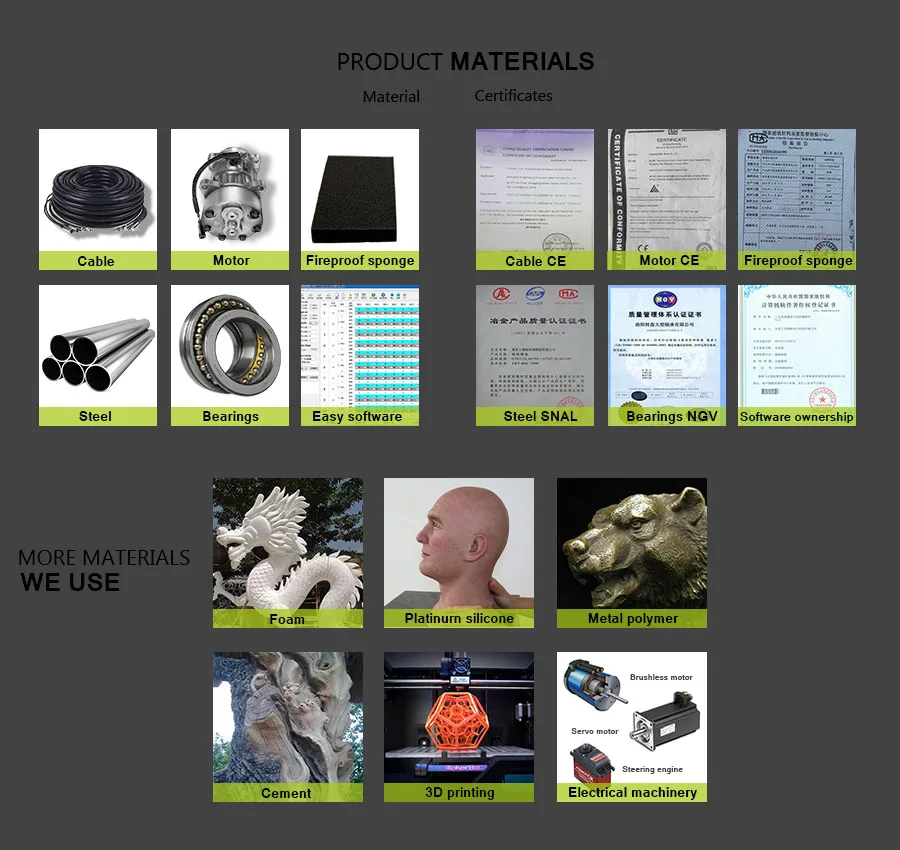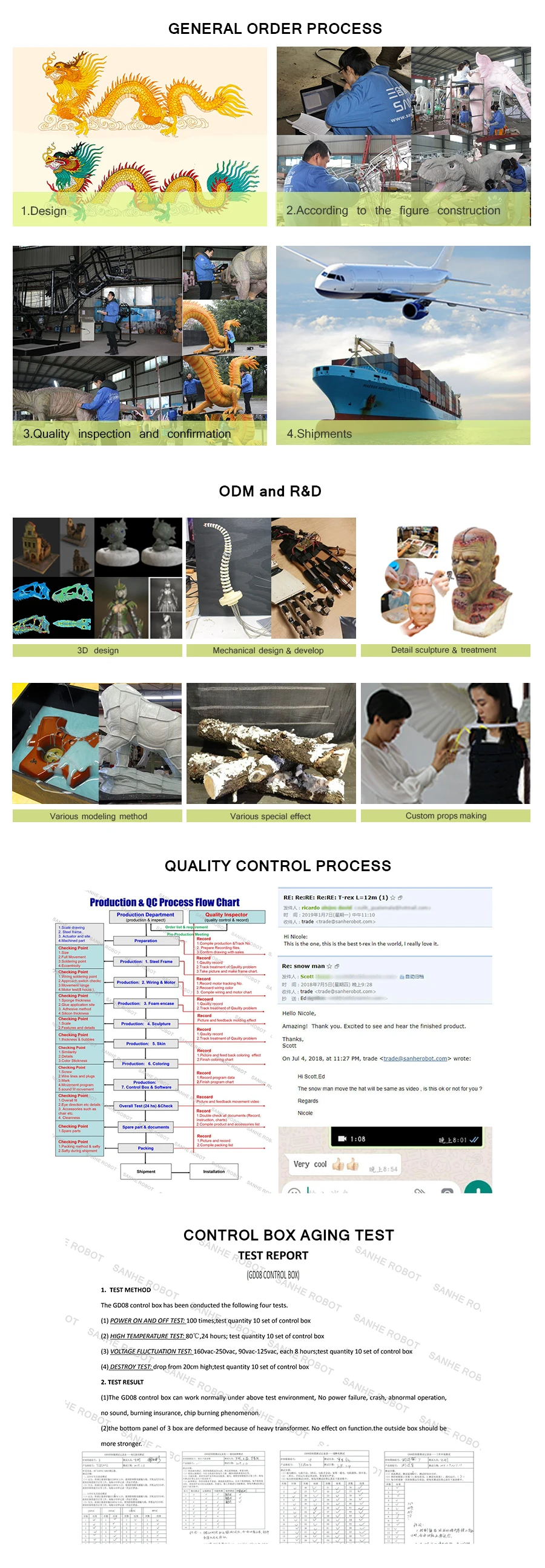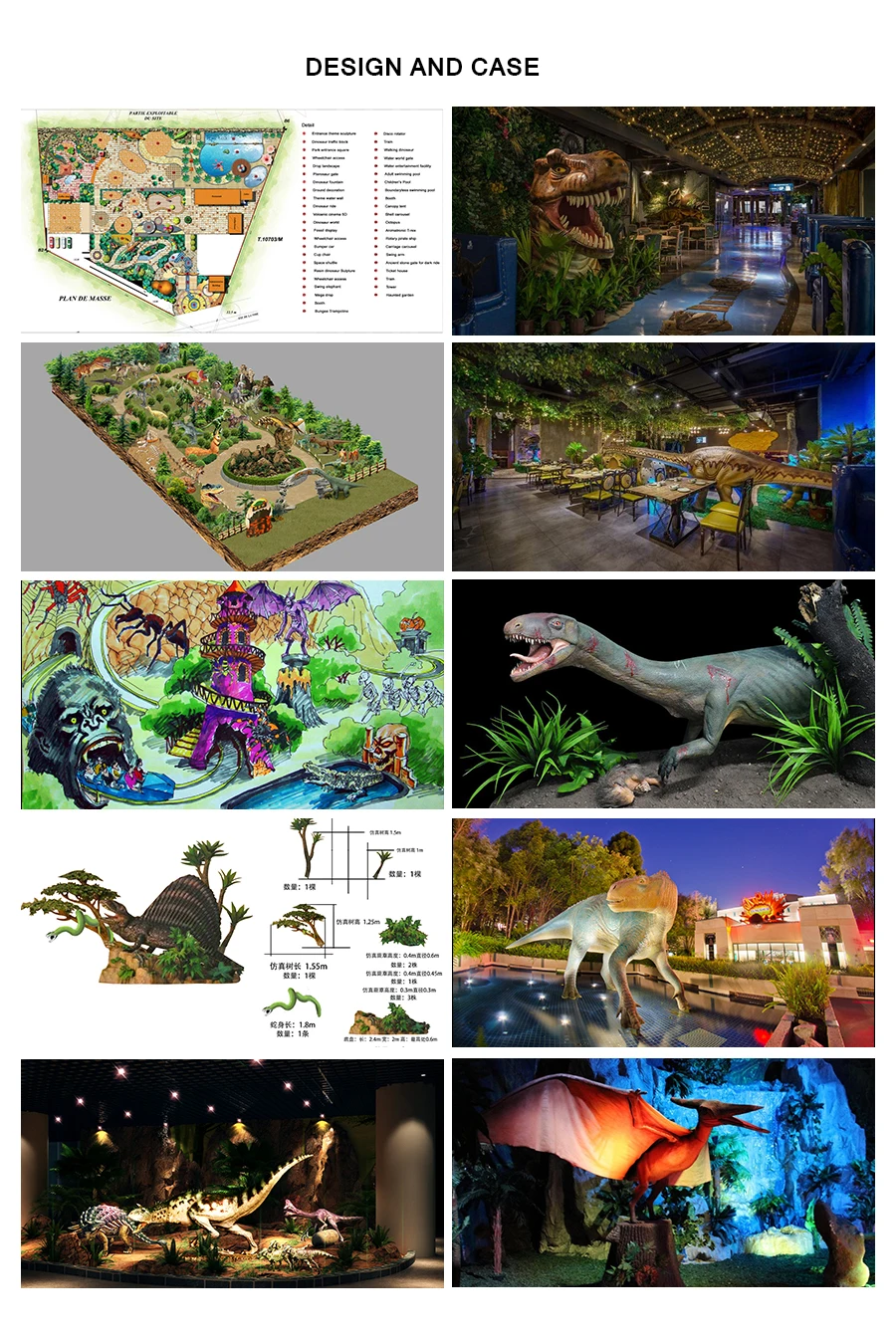Other amusement park products mechanical animatronic Uintatherium animal model


MORE INFORMATION
| Input | AC 110/220V ,50-60HZ |
| Plug | Euro plug / British Standard / SAA / C-UL / or depends on request |
| Control mode | Automatic / Infrared / remote / coin / Button / Voice / Touch / Temperature / shooting etc. |
| Waterproofing grade | IP66 |
| Working condition | Sunshine, rain, seaside, 0~50℃(32℉~82℉) |
| Optional function | Sound can be increased to 128 kinds Smoke,/ water. / bleed / smell / change color / change lights / LED screen etc interactive(Location tracking) / conversine(currently only Chinese) |
AFTER-SALE SERVICE
| Service | Need be cut for shipping,fwill provide a detailed installation manual. |
| Warranty | We provide 2 years warranty for all of our antrimatronic models, the warranty pieriod starts from freight arrives at destination port. Our warranty covers motor, reducer, control box, etc. |






 Robotic animal realistic animal animatronic model
realistic animals robotic amusment park animals realistic animals handmade animal statue playground animal statue electric amusement park equipment outdoor playground playground equipment zoo exhibition animatronics animal model outdoor animals outdoor playground animatronic animals theme park robotic animal life size artificial animal theme park robotic animal life size animal model animatronics model
Uintatherium ("Beast of the Uinta Mountains") is an extinct genus of herbivorous mammal that lived during the Eocene epoch. Two species are currently recognized: U. anceps from the United States during the Early to Middle Eocene (56–38 million years ago) and U. insperatus of Middle to Late Eocene (48–34 million years ago) China
Uintatherium was a large browsing animal. With a length of about 4 m (13 ft), a height of 1.70 m (5.6 ft), and a weight up to 2 tonnes, it was similar to today's rhinoceros, both in size and in shape.[2] Its legs were robust to sustain the weight of the animal and were equipped with hooves.[3] Moreover, a Uintathere's sternum was made up of horizontal segments, unlike today's rhinos, which have compressed vertical segments.
Its most unusual feature was the skull, which is both large and strongly built, but simultaneously flat and concave: this feature is rare and, apart from some brontotheres, not regularly characteristic of any other known mammal. Its cranial cavity was exceptionally small due to the walls of the cranium being exceedingly thick. The weight of the skull was mitigated by numerous sinuses permeating the walls of the cranium, like those in an elephant's skull.
The large upper canine teeth might have served as formidable defensive weapons, and superficially resembled those of saber-toothed cats. Sexually dimorphic, the teeth were larger in males than in females. However, they also might have used them to pluck the aquatic plants from marshes that seem to have comprised their diet.
The skulls of the males bore six prominent knob-like ossicones that grew from the frontal region of the skull. The function of these structures is unknown. They may have been of use in defense and/or sexual display.
Robotic animal realistic animal animatronic model
realistic animals robotic amusment park animals realistic animals handmade animal statue playground animal statue electric amusement park equipment outdoor playground playground equipment zoo exhibition animatronics animal model outdoor animals outdoor playground animatronic animals theme park robotic animal life size artificial animal theme park robotic animal life size animal model animatronics model
Uintatherium ("Beast of the Uinta Mountains") is an extinct genus of herbivorous mammal that lived during the Eocene epoch. Two species are currently recognized: U. anceps from the United States during the Early to Middle Eocene (56–38 million years ago) and U. insperatus of Middle to Late Eocene (48–34 million years ago) China
Uintatherium was a large browsing animal. With a length of about 4 m (13 ft), a height of 1.70 m (5.6 ft), and a weight up to 2 tonnes, it was similar to today's rhinoceros, both in size and in shape.[2] Its legs were robust to sustain the weight of the animal and were equipped with hooves.[3] Moreover, a Uintathere's sternum was made up of horizontal segments, unlike today's rhinos, which have compressed vertical segments.
Its most unusual feature was the skull, which is both large and strongly built, but simultaneously flat and concave: this feature is rare and, apart from some brontotheres, not regularly characteristic of any other known mammal. Its cranial cavity was exceptionally small due to the walls of the cranium being exceedingly thick. The weight of the skull was mitigated by numerous sinuses permeating the walls of the cranium, like those in an elephant's skull.
The large upper canine teeth might have served as formidable defensive weapons, and superficially resembled those of saber-toothed cats. Sexually dimorphic, the teeth were larger in males than in females. However, they also might have used them to pluck the aquatic plants from marshes that seem to have comprised their diet.
The skulls of the males bore six prominent knob-like ossicones that grew from the frontal region of the skull. The function of these structures is unknown. They may have been of use in defense and/or sexual display.

+86-813-2104677

info@sanherobot.com

+86-13990010824

No.13 Huixin Road, Yantan Town, Yantan District, Zigong City, Sichuan Province, China